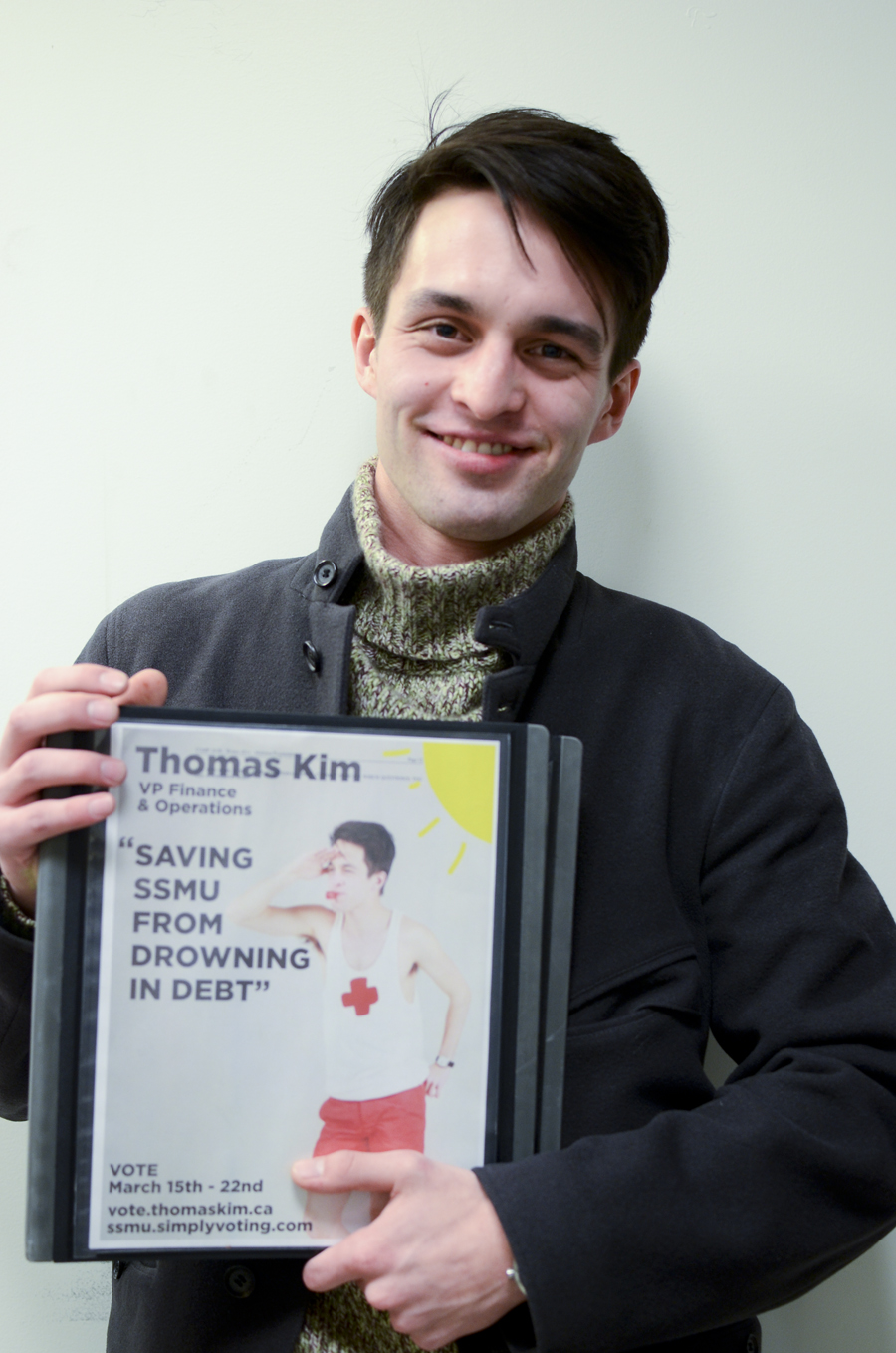McGill Tribune: What experience do you have that makes you apt for this position?
Thomas Kim: The brand managing position that I had at Fullum and Holt is quite relevant to the position. Beyond that, I did communications and PR for a legal clinic in Ontario. I was responsible for PR for the campaign, so contacting media, and media relations, and outreach. I was also responsible for soliciting corporate and individual sponsorship and donation for the clinic, and was successful in doing both. I also have experience in Montreal with event planning, and so part of that is coordinating things with other people, working around multiple peoples’ schedules, creating a budget, revising that budget to maximize profits… as well as promotion and PR, soliciting sponsorships again, checking out different venue spaces. So, I’ve had a lot of experience working with financial details but also working in outreach initiatives, and that’s what I’m really basing my platform on.
MT: Do you have concrete plans for a student-run café?
TK: Well, like I said [during last week’s] debates, it’s very difficult to have a tangible plan, given that there is still the lease negotiation going on…. However, I can say that after the lease negotiation is done, and we are aware of what the contract is and how much money SSMU is required to pay, the step would be to look at the five-year financial plan, and to see if the money allocated for the student-run café is still feasible to allocate. After you examine how much money can be allocated, then you need to take that money and create a budget. Once you have that budget, you take that budget and create a business plan. They have already set a menu—that was researched last year. This year, I hear that they’re in the process of researching equipment and details like tables and chairs. So, assuming that those two things are done, the next step would be the lease and the business plan.
MT: Beyond the student-run café, what specific plans do you have for next year that you’d like to input?
TK: Well, one of my [priorities] is long-term financial sustainability. And what I want to do with that is look into creating a committee to examine the possibility of SSMU opening an alumni relations office. And that office would be incorporated as a charity and a distinctive entity to that of SSMU, so that SSMU can then use that office to broaden its revenue input through soliciting individual donations, and being able to give those donors tax receipts—something that SSMU is unable to do given that they’re not a charity, they’re a non-profit. And being a charity and a non-profit are two distinctive things—a non-profit cannot issue a tax receipt for donations. So, that’s in the long-term plans.
One of the things that I also want to do is try to find someone who is willing to chair… a case competition for students to put forward ideas for student-run businesses in SSMU … and then SSMU can use that business to, again, outreach to the community and increase their operations, which hopefully would increase their revenue.
MT: How would you differentiate yourself from your opponent?
TK: I think that given my experience in the private sector and not-for-profit, especially with the legal clinic… perhaps I have a stronger legal background than he might. And I think that’s important, especially when considering SSMU is [not only] a corporation, but it’s a non-profit corporation, and there are a lot of rules regarding its non-profit status. So even though we have these great ideas, they’re not always necessarily financially feasible given the rules that govern non-profits.
MT: Last night, you talked a bit about visibility and engaging more with SSMU constituents. Out of the six executives, it might be easier for a position like VP Finance to stick within the office. What ideas do you have to make yourself a presence in the SSMU Building, and engaging with clubs and services and other students?
I want to hold weekly office hours in Gert’s. And the reason that I want to do that is … I find the process of speaking to the executives sometimes to be somewhat tedious … it’s a little bit intimidating and at the same time it makes [the executives] feel like they’re removed from campus when really, they’re working for you, or they’re working for us rather, and people can kind of forget that they are the stakeholders. So that’s something that I think would be new, and would be a little more engaging.
MT: What were you for Halloween?
TK: What was I for Halloween this year? I didn’t dress up because I was studying in the library that night, and I ended up going out later, like after I was, so I just said that I was a professor and dressed up really nerdy.
See TVM’s interview with Kim here.









